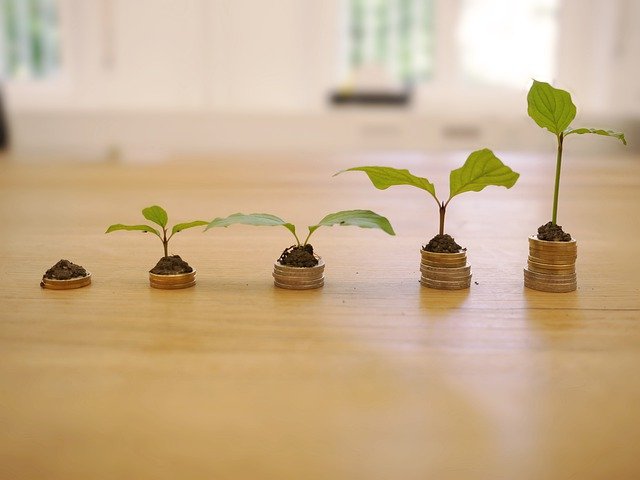How to increase Rizq from Allah – As Muslims in this day and age we have become conditioned to think that money is inherently evil, that it corrupts even the best of people and that it is somehow wrong to want an increase in Rizq. While the fact that money leads to a lot of Fitan (trials), it is not inherently evil. In fact, it opens up the doors to a lot of good deeds. There are many examples of Sahaba (May Allah Be Pleased With Them) that were wealthy and managed to accomplish a lot in the path of Allah with their wealth e.g. Abu Bakr, Umar, Uthman, Abdur Rahman Ibn Awf etc…. Abu Bakr (RA) provided all the sustenance for many people (some who were not even Muslim). Umar (RA) once donated half his wealth in charity seeking Allah’s pleasure and attempting to compete with Abu Bakr (RA) in good, only to learn that Abu Bakr (RA) had donated all his wealth. Uthman (RA) donated so many times to the campaign of Tabuk that RasulUllah (SAW) said “Nothing Uthman does after today will harm him” (Tirmidhi).
We have also been conditioned to think that it is difficult to become wealthy in a Halal way. However, there is plenty of evidence to the contrary, and in fact it is clearly the best way to become wealthy and stay wealthy. Many that became wealthy did so on the basis of their honesty, and often what might seem purely by accident. It is clear what happened in such cases (and all other cases was the plan of Allah). Many who earn their wealth using dishonesty and deceit are not able to hold onto it. As Muslims our advantage is that we can ask for Rizq directly from the One that provides. The Quran and Sunnah show us the best ways to earn, keep & increase Rizq.
Ways to increase Rizq:
Increase Rizq through Taqwa of Allah & Tawakkul
Allah says in the Quran:
And whoever fears Allah – He will make for him a way out. And will provide for him from where he does not expect. And whoever relies upon Allah – then He is sufficient for him. Indeed, Allah will accomplish His purpose. Allah has already set for everything a [decreed] extent.(65:2-3)
To have Taqwa of Allah is to be fearful & mindful that Allah is watching all of our actions. In the verses above from Surah Al-Talaq, Allah’s promise is clear that those that have fear of Allah, Allah will always find a way our for them from any difficulty. It is important to have Taqwa in all facets of life, not just when earning a living e.g. not only in fulfilling your Islamic duties, but also in how you deal with people. Having Taqwa opens the door to Allah’s blessings, which in turn affects our Rizq.
A logical extension to this is having Tawakkul or the act of depending only on Allah. And as the verse clearly states that whoever depends on Allah, Allah will take care of him/her in all matters. Many of us don’t fully understand what this means. Simply put, it means that you take care of your affairs in all aspects within your control, but leave the outcome to Allah. For example a student studying for a test should study well in advance and thoroughly. Once that is done, he/she should surrender the outcome to Allah. If the student doesn’t do his/her part in preparing, for the test, he/she should not expect to perform well on the test. A good example of Tawakkul is Abdur Rahman Ibn Awf (RA), migrated to Madinah with close to nothing, began trading in the marketplace with whatever he had and eventually went on to become arguably the wealthiest Sahaba.
Making sure Rizq is earned, kept & spent through Halal mediums
Imam Muslim reports from the narration of Sayyiduna Abu Hurayrah (RA)
“O people, Allah is Good and He therefore, accepts only that which is good. And Allah commanded the believers as He commanded the Messengers by saying: ‘O Messengers, eat of the good things, and do good deeds; verily I am aware of what you do’ (Surah al-Mu’minun. 51). And He said: ‘O those who believe, eat of the good things that We gave you’ (Sūrah al-Baqarah. 172). He then made a mention of a person who travels widely, his hair dishevelled and covered with dust. He lifts his hand towards the sky (and thus makes the supplication): ‘O Lord, O Lord,’ whereas his diet is haram, his drink is haram, and his clothes are haram and his nourishment is haram. How can then his supplication be accepted?”
Earning Halal Rizq means that no sin is committed that leads to that income, for example if money is earned by selling liquor or other prohibited sources. It also means that whatever was earned was rightfully earned i.e. if any products were bought or sold, fair measure was given based on the agreement or if services are sold, for example an employee, all the conditions of the job were met, and there was no cheating involved. Such wealth parts quickly from the person earning it, or even if it stays, it causes great difficulty.
Of course, simply earning Halal Rizq is not enough, ensuring that it is kept and used in Halal ways is also important. For example, saving the money it in an institution that deals in Riba (usury or interest). Even if the person who the money belongs to does not earn interest, it is better to avoid such institutions if possible. Also the money/property should not be used for sinful activities.
After Abdur Rahman Ibn Awf (RA) passed away, some of his wealth was inherited by Sahaba such as Uthman bin Affan (RA). Although Uthman bin Affan (RA) was already wealthy and had no need of the inheritance, he agreed to keep what he inherited because as he stated “Abdur Rahman Ibn Awf’s (RA) wealth was pure Halal”. Such are the blessings of Halal Rizq.
Being Grateful to Allah
“And remember! Your Lord caused to be declared: If ye are grateful, I will add more unto you” (Quran, 14:5-7)
Unfortunately these days a culture of dissatisfaction has permeated into our psyche. We are always being hounded by media constantly reminding us about what we don’t have and creating a false sense of need for things we don’t really require – notice how many of us obsess over a new cellphone or a pair of shoes, while the old ones are perfectly fine? We are so preoccupied by what we don’t have that we forget to think about what we do and how fortunate we are.
We simply have to take a look around and see all that Allah has blessed us with – the device you are reading this article on, the internet connection, the air conditioned or heated room that you are in, even your eyes – ask a blind person how much of a blessing they are. To make matters worse, we are so connected, so busy and in a constant state of being overwhelmed that we forget to take a moment and appreciate what Allah has given us.
But as Allah has promised in Surah Ibrahim (above), if we take the time to be grateful & recount Allah’s blessings & mercy on us, Allah will give us even more than what we have.
Asking Allah’s Forgiveness (Istighfar)
“And said, ‘Ask forgiveness of your Lord. Indeed, He is ever a Perpetual Forgiver. (10) He will send [rain from] the sky upon you in [continuing] showers (11) And give you increase in wealth and children and provide for you gardens and provide for you rivers. (12)” (71:10-12)
Yet again another thing we forget to do is to remember that in spite of all that Allah has given us, we do things that displease Him. Of course it is impossible for us humans to be perfect, but we should make a conscious effort to always earn Allah’s pleasure and remember to ask forgiveness for all our sins whether we do them intentionally or unintentionally. It is reported that RasulUllah (SAW) used to make Istighfar 100 times a day. We should at least follow his Sunnah.
Allah loves those who repent, and has promised to increase them in their wealth in the verses above.
Being Just
Ibn Abbas reported: The Messenger of Allah, peace and blessings be upon him, said, “A day of just leadership is better than sixty years of worship, and a legal limit properly established in the land is more pure for it than forty days of rain.”
Source: al-Sunan al-Kubrá 16139
Grade: Hasan (fair) according to Al-Mundhiri
It is the Sunnah of Allah that wherever justice prevails, wealth follows. If we look at early Islamic history, we see that once Islamic governance was established starting with the later years of RasulUllah’s (SAW) prophethood through the Khilafa, wealth began to increase almost exponentially. This happened largely due to the establishment of justice. We can see this throughout history, wherever justice prevails, so does wealth. Similarly it tends to diminish as justice diminishes also.
Although we don’t necessarily have control over what happens at the state level, we can exercise justice in our own families, households, in our dealings, anyone we have been granted authority over by Allah. If we do so, by the Mercy of Allah, wealth will follow.
Spending in the path of Allah
Spending in the path of Allah is one of the best ways to increase one’s Rizq. This is the Sunnah of Allah that anything that we spend in the way of Allah finds it way back to us and in multifolds. A renowned Shaikh mentioned that he was asked by some Muslim businessmen if it was ok to give charity with the hope that Allah improve how their business was performing. They mentioned that they usually used to do this only when they were suffering losses, or their businesses were not doing very well. They mentioned that every time they did this, their businesses would improve soon afterwards. They Shaikh mentioned that this is Halal to do because it is up to us where we want the reward for our spending in the path of Allah. However, Allah has no limits, so it is best to ask to be rewarded in both this world and the next.
The Prophet’s (SAW) uncle Al-Abbas (RA) was captured fighting on the side of the Quraysh during the Battle of Badr. RasulUllah (SAW) insisted that he ransom himself and his nephews. But Al-Abbas (RA) claimed he already was Muslim, to which RasulUllah (SAW) said:
Allah knows if you are Muslim! If what you are claiming is true, then Allah will compensate you. As for your outward appearance, it was against us. Therefore, ransom yourself, as well as, your nephews Nawfal bin Al-Harith bin `Abdul-Muttalib and `Aqil bin Abu Talib bin `Abdul-Muttalib, and also your ally `Utbah bin `Amr, from Bani Al-Harith bin Fihr
After Al-Abbas (RA) ransomed himself, Allah revealed in the Quran:
O Prophet, say to whoever is in your hands of the captives, “If Allah knows [any] good in your hearts, He will give you [something] better than what was taken from you, and He will forgive you; and Allah is Forgiving and Merciful.” (8:70)
Al-Abbas (RA) mentioned later that after I he Muslim, Allah gave him twenty servants in place of the twenty Uwqiyah he lost, and he had wished he had spent more in the path of Allah.
Make Dua for Rizq
RasulUllah (SAW) would recite the following dua after Fajr:
اللَّهُمَّ إِنِّي أَسْأَلُكَ عِلْمًا نَافِعًا وَرِزْقًا طَيِّبًا وَعَمَلاً مُتَقَبَّلاً
Transliteration: Allahumma inni as’aluka ‘ilman nafi’an, wa rizqan tayyiban, wa ‘amalan mutaqabbalan
The translation of this dua, “O Allah, I ask You for beneficial knowledge, goodly provision and acceptable deeds”
It was narrated from Umm Salamah that when the Prophet (SAW) performed the Subh (morning prayer), while he said the Salam, he would say:
Allahumma inni asaluka ‘ilman nafi’an, wa rizqan tayyiban, wa ‘amalan mutaqabbalan
“O Allah, I ask You for beneficial knowledge, goodly provision and acceptable deeds.’”
Grade: Sahih (Darussalam)
Hadith Book: Sunan Ibn Majah
To Sum Up
Make a habit of practicing the following daily:
- Depend on Allah in all your actions after having done the due diligence. Be mindful of Allah in all your actions and dealings
- Ensure that your income and spending is Halal to the best of your abilities
- Regularly notice Allah’s blessings on you and be thankful
- Ask Allah’s forgiveness regularly – realize His blessings on you in spite of your shortcomings
- Practice justice wherever you have been given authority
- Don’t hold back when spending in the path of Allah
- Memorize & recite the dua for rizq
May Allah make us, His slaves, successful in this world and the next. May Allah make it easy for us to earn His pleasure and difficult for us to earn his displeasure. May Allah make us dependent on no one but Him.





